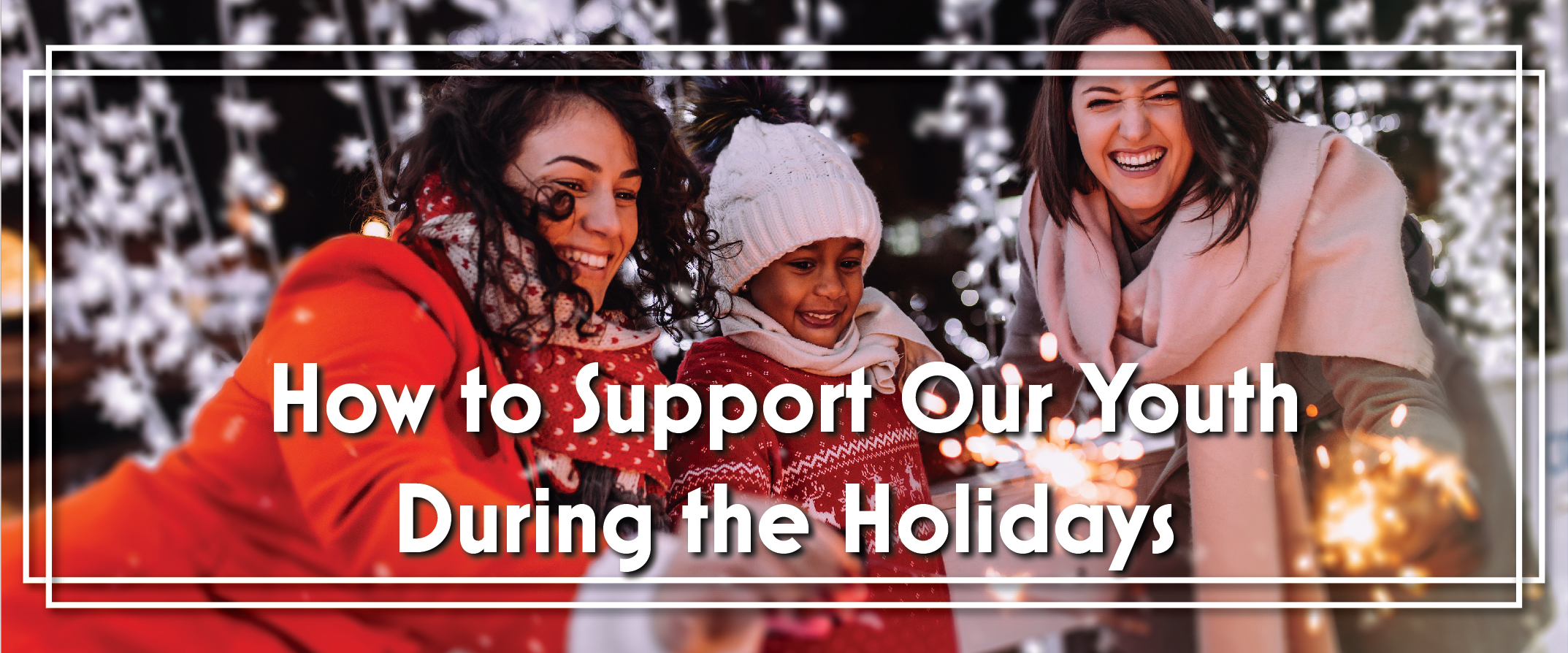
How to Support Our Youth During the Holidays
By Dr. Lucia Babayants – Registered Psychological Associate at The Help Group and Professor at The Chicago School of Professional Psychology
While for some people, the holidays may be the happiest time of year, to others, it may be another reminder of their harsh reality of being alone, feeling abandoned or being separated from loved ones.
The truth is that, for many, this can actually be the most difficult time of the year. In a 2021 study, the National Alliance of Mental Health Illness found that sixty-four per cent of Americans feel their mental health is negatively impacted by the holidays. Indeed, for some people, the holidays can become another excruciating time of the year where we feel alone in our battle to stay centered. The chances of thriving, however, increase when we have the proper tools and approach to support each other, especially our youth during the holidays
In The Help Group’s December webcast, “Supporting the Mental Well-being of Young People During the Holidays” (Wednesday, December 7th at 10am PDT), we offer parents and caregivers strategies and ideas for supporting children and teens during the holiday season. We provide tips that can be used to talk to their children and teens about how they are feeling and changes to holiday celebrations and traditions. It also shares tips that families can use to make this holiday season our most special ever, including creative ways in which families can stay connected to loved ones and friends.
Given the changes in the world, adults and children may experience waves of sadness, disappointment, loneliness, grief, and anger. It is important to not feel alone with these feelings, to have your feelings supported and validated by others, and to know that in the midst of these difficult times, you can create moments of joy, hope, and connection. Holiday events can be stressful for children. Family members who haven’t seen the children for a while tend to focus a lot of attention on them, comment on how they’ve grown and changed, or hug and kiss them without asking. Even the change in activity level and managing multiple conversations and relationships can cause concern for kids.
Additionally, there may be pressure to get dressed up, take perfect family pictures, and be in a good mood for meals and events when that may not be how they are feeling inside. Changes in school routines coupled with facing this holiday season may be particularly challenging for kids, and we should be sensitive to their feelings and needs. Remember that stress can be a natural and automatic physical, mental and emotional response to challenging events, and most children don’t yet have the coping skills to navigate through on their own.
Some signs that children are stressed may include emotional outbursts, increased irritability, trouble sleeping, withdrawal from others, struggles in school, frequent complaints of headaches or stomach aches, and increased defiance.
Holidays can be confusing because the attitude of a “holiday joy and bliss” might not correspond to our behavior and reality of being and feeling alone. This dissonance alone can destabilize mental health and serve as a major challenge for young people. Coming up, we will offer tips on how to decrease cognitive dissonance in youth and how to “survive holidays”. Thanks to the neuroplasticity model of the brain, every new thought, every new feeling, and every new experience is changing our brain physically, chemically and psychologically.
We can actually shape our brains daily with the decisions and choices we make. This provides a great deal of hope and a sense of control over our physical, mental, and emotional states. Many times an individual might feel powerless over exhibiting sadness, anxious thoughts, low motivations and other discomforting symptoms. The holiday season can double and triple these unpleasant feelings and thoughts. It is important to be aware of the holiday’s potential to inflict this and to know our potential of how to face this reality with courage, until the end of the season where everything can go back to normal.
As Victor Frankel once said, “There is only one type of freedom, no one can take away from you and that is how you will respond to the experience, the freedom to choose one’s attitude in any given circumstance”. During our webcast we will hold a transparent talk on how to support our youth during the holiday season and how to transform our anxious and traumatic cognitions into fuel for a joyful holiday this year.
